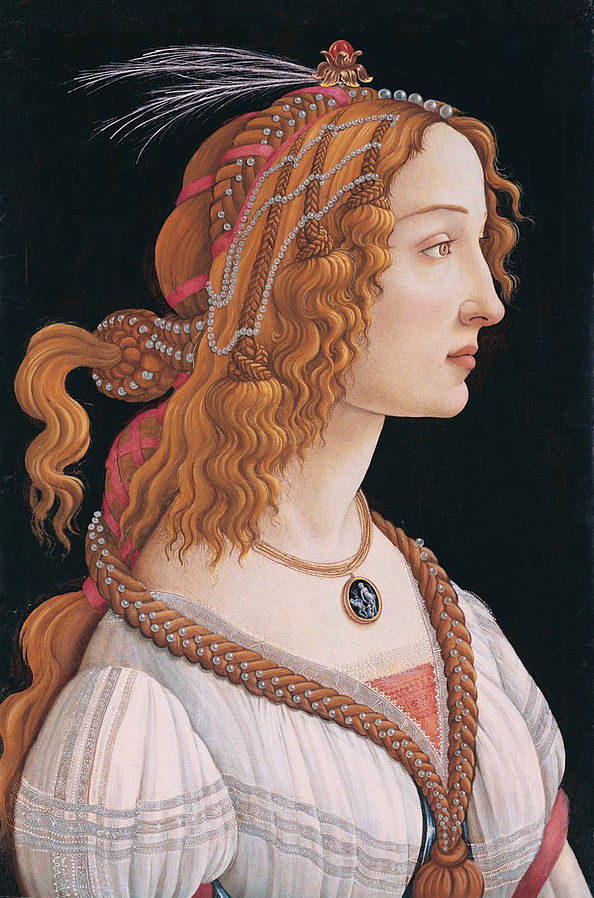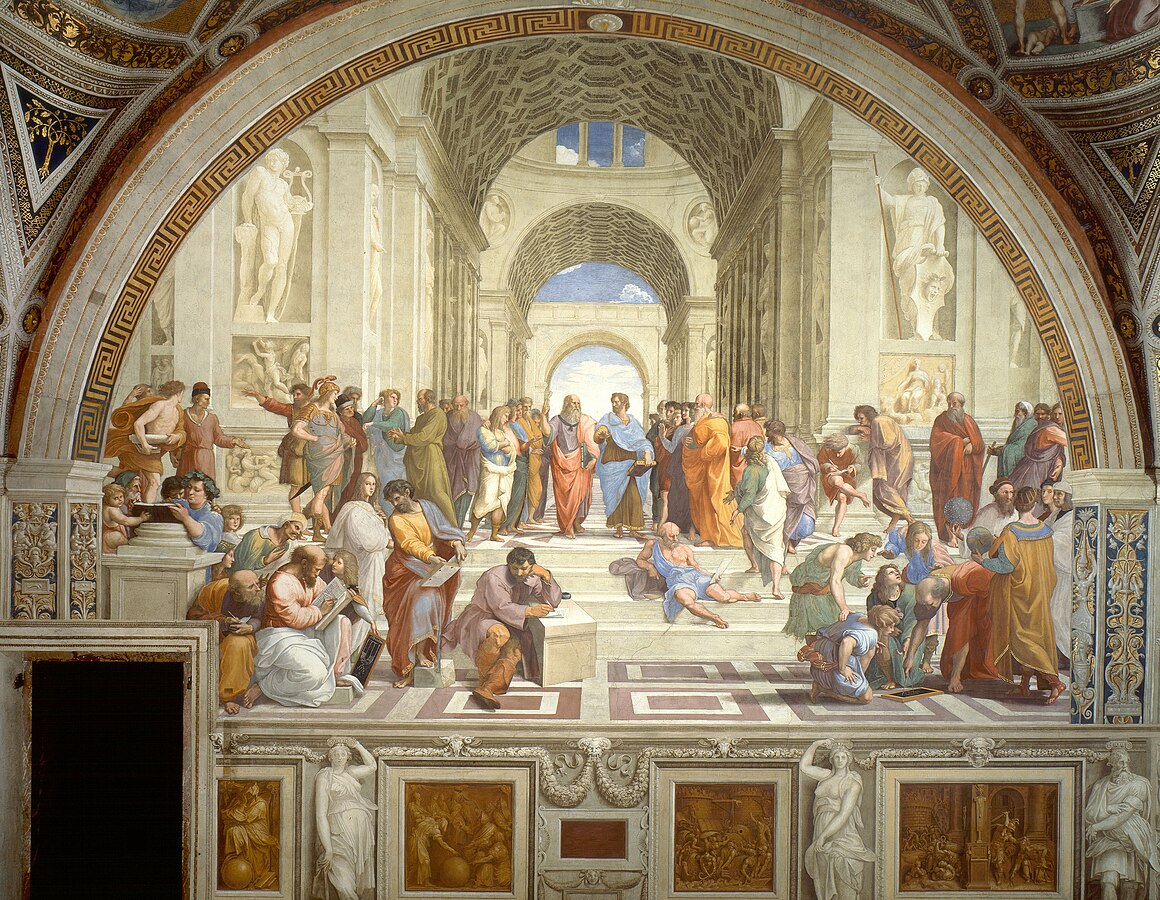Undergraduate Study with the Centre for the Study of the Renaissance
Modules x 2 on Renaissance Europe. Both 15CATS
Introduction
The Renaissance (ca 1400-1700) was an age of unprecedented cultural and artistic achievements. It was the age when famous authors like Shakespeare wrote their literary masterpieces, and when artists like Michelangelo and Raphael created works of art that are still widely admired today.
The Centre for the Study of the Renaissance offers two modules to undergraduates from across the University's faculties, which can be taken by either intermediate or advanced students with any academic background.
These modules offer a comprehensive introduction to a wide range of aspects of this fascinating period in human history, such as the art, architecture, and literature of the age, but will also cover social themes, like gender and sexuality, religion, refugees, and even pub culture. The Centre for the Study of the Renaissance at Warwick is internationally recognised as a leading community for research on the Renaissance and comprises around forty academics. Each of the classes will therefore be taught by a tutor who is a specialist on the topic of that class.
After attending one or both of these modules, you will have a comprehensive and critical understanding of the Renaissance and historiographical and interpretative debates. You will also be encouraged to develop your own views about the Renaissance through the close study of primary and secondary sources, discussions in class, and an essay at the end of each module.
To register your interest in either (or both) modules, please complete the short form HERE.
.

"I am very appreciative of having been able to take the Renaissance Europe modules last year. In studying both Renaissance modules, I have been able to develop a broader understanding of early modern history and as multi-disciplinary modules, I enjoyed the opportunity to study topics I would otherwise typically not have had the chance to, as just a history and politics student." (Evan, 2024)
Renaissance Europe Term 1, 2025-26
This interdisciplinary module, will introduce students to the complex ways in which Renaissance Europeans understood and interacted with the physical world around them. Participants will have the opportunity to engage with a wide variety of textual, visual, and archival sources, spanning broad geographical contexts (Spain, France, Italy, England, Germany, and the Americas), and disciplinary approaches (History, History of Art, Intellectual History, History of Science, Ecohistory and environmental studies, literature, and religion).
The course will expose students to a multitude of intertwined topics, including religious and magic views of nature; tensions between indigenous knowledge and dominant authorities; response to changes posed by specific climatic conditions and foreign ecologies; environmental configurations of the early modern society; food and exploitation of natural resources (hunting, fishing, and farming); gemstones and natural philosophy. By looking at the interconnection of Renaissance culture with its diverse ecologies, this course hopes to ultimately inform new ways of thinking about our present relationship with the natural world. Module convenor, Dr Delia Moldovan.
Renaissance Europe Term 2, 2025-26
This module entitled 'Renaissance Science: Medicine, Alchemy, and Politics', will not only provide a general introduction to the main coordinates of Renaissance culture but will also make connections with the preceding medieval period and attempt to address contemporary issues and interdisciplinary applications through the lens of the Renaissance. Students will have access to a series of lectures, each analysing broad themes and specific aspects of the history and evolution of Renaissance medical, political, and scientific thought. Students will gain a broad understanding of key themes and concepts in the Renaissance and will have the opportunity to read widely and engage with a diverse range of scholarly approaches representing different geographic areas. Through this series of lectures focusing on broad themes of Renaissance Sciences, students will be encouraged to challenge popular images of the 'long dark ages' and the 'reactionary' Renaissance to critically examine how historical perspectives may show continuity even to the present day. The module will present the opportunity to critically engage with primary source materials and provide a sound knowledge foundation in key concepts and events. Module convenor Dr Erin Connelly
.
More specific aims are:
- to introduce students to the historical and cultural development of Europe in the Renaissance period
- to help students develop a critical understanding of how the period has been and is interpreted by scholars in different fields
- to extend students’ knowledge of and ability to work with a variety of different sources, including textual, visual, and material
- to enhance students’ capacity for effective information-gathering, research, and writing
- knowledge of historical and cultural development in Renaissance Europe
- critical thinking about the period from different subject perspectives
- understanding of the historiography undergirding the study of the Renaissance
- familiarity with different kinds of sources and their context
- subject-specific research skills
Practical Details
Who can attend? Intermediate (year 2) and advanced (year 3) students from any academic background. No prior knowledge of the history, literature, or art of the period is required.
Do I have to attend both modules if I pick this option? Students are free to choose to attend either or both of the modules.
When do the classes take place? Classes are 2hrs, on Monday afternoons 4-6pm.
How will my work be assessed? 100% Essay. Year-2 students: 1x 3,500-word essay chosen from a list of given titles. Year-3 students: 1x 4,000-word essay on a freely chosen topic, determined in consultation with the module convenors and/or tutors.
What are the credit weightings? Both modules have a 15 CATS weighting each.
What are the module codes? Term 1: RS201-15 (year 2), RS301-15 (year 3). Term 2: RS200-15 (year 2), RS300-15 (year 3).

Undergraduate Research Opportunities
The Centre for the Study of the Renaissance is keen to promote undergraduate interest in the Renaissance. Please feel free to contact the Director or the Director of Graduate Studies with any queries about our activities. Note that postgraduate modules are not normally open to undergraduates, but we may explore the possibility of taster sessions. More info HERE.
